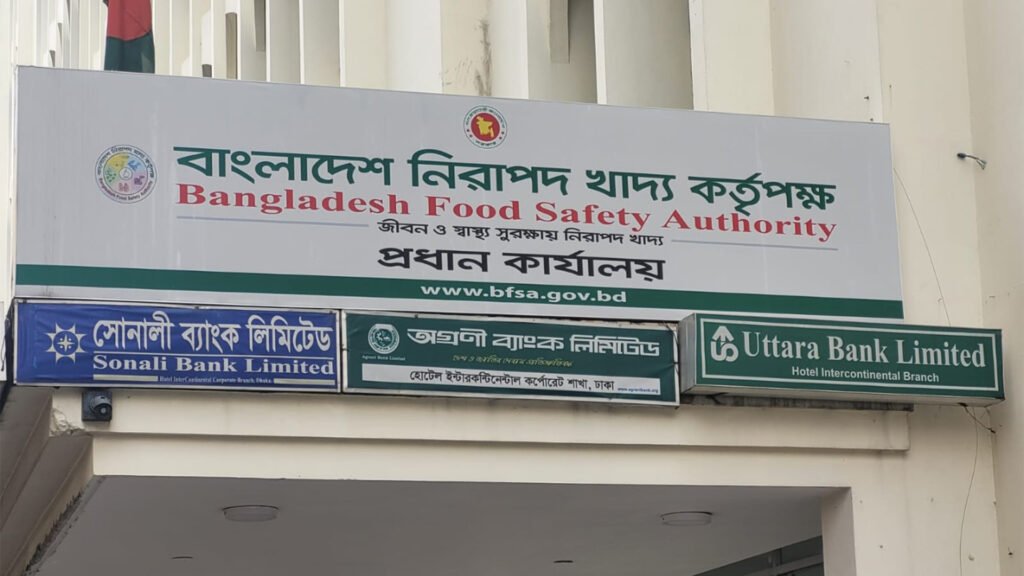Arrest Warrants Issued by Pure Food Courts and Jurisdiction of DSCC Courts in Bangladesh
Food safety is a critical concern in Bangladesh due to widespread food adulteration affecting consumer health. Recognizing this, the government has implemented robust legal frameworks to address these issues. Among these measures is the establishment of Pure Food Courts under the Food Safety Act 2013. This article, penned by TRW Law Firm in Dhaka, delves into the processes behind arrest warrants issued by Pure Food Courts and examines the legal standing of Dhaka South City Corporation (DSCC) courts.
Food Safety and Legal Frameworks in Bangladesh
Food safety in Bangladesh has evolved significantly, from the Bangladesh Pure Food Ordinance of 1959 to the comprehensive Food Safety Act of 2013. The constitution of Bangladesh under Article 15 asserts the state’s responsibility to ensure basic necessities, including food, while Article 18 emphasizes the state’s duty to improve public health and nutrition.
The Food Safety Act 2013, enforced in 2015, established the Bangladesh Food Safety Authority (BFSA) and empowered Pure Food Courts to ensure compliance with food safety standards. This act supersedes previous regulations, introducing stringent measures to tackle food adulteration.
Pure Food Courts: Mandate and Authority
According to Section 2(4) of the Food Safety Act 2013, a “Food Court” refers to a Pure Food Court designated under Section 64. These courts have exclusive jurisdiction to try offenses related to food safety. Section 64 specifies that the government, in consultation with the Supreme Court, can designate courts of 1st Class Magistrates or Metropolitan Magistrates as Pure Food Courts. As of now, 71 such courts have been designated across Bangladesh.
Despite this extensive framework, the practical implementation faces significant challenges. Many of these courts, burdened with additional responsibilities on top of their regular duties, have not effectively addressed food safety cases. The BFSA’s claim of assigning public prosecutors to each court often does not reflect the ground reality, where cases related to food safety are rarely prosecuted.
Process of Issuing Arrest Warrants
The process of issuing arrest warrants in Pure Food Courts is governed by the Food Safety Act 2013 and the Code of Criminal Procedure (CrPC). Here’s a detailed look at the procedure:
- Complaint Lodging: Under Section 66 of the Act, any individual can lodge a complaint regarding food safety violations. The complaint must be submitted in writing to the Chairman of BFSA or an authorized inspector.
- Investigation: Upon receiving a complaint, the BFSA or the designated authority conducts a preliminary investigation. If an offense is confirmed, a case is filed in the Pure Food Court.
- Case Filing: The complaint, once validated, leads to a formal case in the Pure Food Court. The Court then proceeds with the judicial process, adhering to the CrPC.
- Issuance of Warrants: If the Court deems it necessary, it can issue an arrest warrant for the accused. This involves assessing the evidence and determining probable cause. The warrant is executed by law enforcement agencies.
- Trial and Prosecution: The trial is conducted summarily, with the Court empowered to accept various forms of evidence, including audio-visual materials, to establish guilt.

Legal Enforcement and Challenges
While the Food Safety Act provides a robust framework, its enforcement has been lackluster. Public awareness about the legal provisions remains low, and the incentive structure to encourage reporting of violations is not widely known. Section 62 of the Act promises a 25% incentive of the fine amount to the complainant, yet this provision is rarely utilized due to lack of awareness.
Moreover, the investigative process, outlined in Sections 67 and 68, grants investigators significant authority akin to police officers, including a 120-day period to submit their reports. However, the effectiveness of this process is hampered by bureaucratic inefficiencies and inadequate resources.
The Role of DSCC Courts
Dhaka South City Corporation (DSCC) courts play a vital role in urban governance, including matters of food safety. However, the legitimacy and effectiveness of these courts have been questioned due to overlapping jurisdictions and insufficient resources. While DSCC courts are empowered to handle municipal violations, including those related to food safety, they often lack the specialized focus and capacity of Pure Food Courts.
Legal Authority and Challenges
The legality of DSCC courts in addressing food safety issues stems from municipal laws and regulations. However, their authority is often overshadowed by the mandates of Pure Food Courts established under national legislation. This dual jurisdiction can lead to confusion and ineffective enforcement.
Public Awareness and Legal Recourse
For the legal framework to be effective, public awareness is crucial. The Food Safety Act 2013 encourages individuals to report violations and provides legal recourse, including civil suits for compensation. Section 76 of the Act allows for civil actions alongside criminal cases, promoting a comprehensive approach to food safety enforcement.
The legal structures in Bangladesh, particularly the Food Safety Act 2013 and the establishment of Pure Food Courts, provide a robust mechanism to ensure food safety. However, the effectiveness of these measures is undermined by practical challenges, including inadequate public awareness, bureaucratic inefficiencies, and resource constraints.
The Bail Process in DSCC Courts
Introduction
The Dhaka South City Corporation (DSCC) courts play a significant role in managing urban governance issues, including municipal violations and minor offenses within their jurisdiction. Among the many legal processes managed by DSCC courts, the bail process is of particular importance. This article examines the bail process in DSCC courts, outlining the legal provisions, procedures, and practical considerations involved.
Legal Framework for Bail
The bail process in DSCC courts is governed by the Code of Criminal Procedure (CrPC) of 1898, which applies to all magistrate courts in Bangladesh, including those under DSCC jurisdiction. Bail is a legal mechanism that allows an accused person to be released from custody, pending trial or further investigation, upon providing a guarantee that they will appear before the court when required.
Types of Bail
Bail can be classified into two main types:
- Bailable Offenses: These are offenses where the accused has a right to be granted bail. The conditions for bailable offenses are generally less stringent, and bail is often granted as a matter of course.
- Non-Bailable Offenses: For these offenses, bail is not a right but a discretion of the court. The court evaluates the severity of the crime, the risk of the accused absconding, the possibility of tampering with evidence, and the likelihood of the accused committing further offenses if released.

Bail Process in DSCC Courts
- Filing a Bail Petition: The first step in the bail process is the filing of a bail petition by the accused or their legal representative. The petition is submitted to the DSCC court where the case is being heard. The petition should include relevant details such as the nature of the offense, reasons for seeking bail, and any supporting evidence or documents.
- Initial Hearing: Upon receiving the bail petition, the court schedules an initial hearing. During this hearing, the defense presents arguments supporting the bail request, while the prosecution may present reasons for opposing bail.
- Consideration of Bail Factors: The DSCC court considers several factors before deciding on the bail petition. These include:
- The nature and gravity of the offense.
- The accused’s past criminal record, if any.
- The likelihood of the accused appearing for future court dates.
- The possibility of the accused interfering with the investigation or influencing witnesses.
- The overall interest of justice.
Decision on Bail: After evaluating the arguments and evidence, the court may either grant or deny bail. If bail is granted, the court sets the terms and conditions, which may include:
- The amount of the bail bond.
- Sureties or guarantors who can vouch for the accused’s compliance with bail conditions.
- Restrictions on the accused’s movement or activities.
- Regular reporting to a police station or court.
- Execution of Bail Bond: Once bail is granted, the accused must execute the bail bond by depositing the specified amount and providing the necessary sureties. Upon completion of these formalities, the accused is released from custody.
- Monitoring Compliance: After being granted bail, the accused is required to comply with the conditions set by the court. Failure to adhere to these conditions can result in the cancellation of bail and re-arrest.
Challenges and Practical Considerations
While the bail process in DSCC courts follows the legal framework of the CrPC, several practical challenges can arise:
- Bureaucratic Delays: The bail process can be delayed due to bureaucratic inefficiencies, which can prolong the period of custody for the accused.
- Overburdened Courts: DSCC courts, like many other courts in Bangladesh, often face a high volume of cases, leading to delays in scheduling and hearing bail petitions.
- Lack of Awareness: Accused individuals and their families may not be fully aware of their legal rights and the bail process, leading to confusion and delays in securing bail.
- Access to Legal Representation: Effective legal representation is crucial for successfully navigating the bail process. However, not all accused individuals have access to competent legal counsel, which can adversely affect their chances of being granted bail.
For Bangladesh to achieve its food safety goals and adhere to its constitutional mandates, it is imperative to enhance the functionality of Pure Food Courts, improve coordination between different legal entities like DSCC courts, and foster greater public awareness and participation in the legal process. Only through these concerted efforts can the nation ensure the safety and well-being of its consumers, fulfilling both legal and moral obligations to its citizens.
